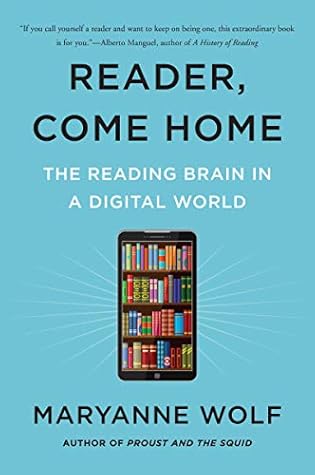More on this book
Community
Kindle Notes & Highlights
Read between
January 16 - May 27, 2024
Perhaps you have felt a pang of something subtle that is missing when you seek to immerse yourself in a once favorite book. Like a phantom limb, you remember who you were as a reader, but cannot summon that “attentive ghost” with the joy you once felt in being transported somewhere outside the self to that interior space.
When we read for hours on a screen whose characteristics involve a rapid speed of information processing, we develop an unconscious set toward reading based on how we read during most of our digital-based hours. If most of those hours involve reading on the distraction-saturated Internet, where sequential thinking is less important and less used, we begin to read that way even when we turn off the screen and pick up a book or newspaper.
Our culture’s recipe would not be so much for forgetting, but for never remembering the same way in the first place: first because we are splitting our attention too much for our working memory to function optimally; and second, because we assume that in a digital world, we do not need to remember in the ways we remembered in the past. The current variation of Socrates’ worry is that our increased reliance on external forms of memory, combined with the attention-dividing bombardment by multiple sources of information, is cumulatively altering the quality and capacities of our working memory
...more
Will our culture’s continuous flow of information and distraction alter or diminish young children’s attention and memory? Will the fact that most “answers” are immediately available online cause older children to exert less effort to learn things for themselves? If either of these is true, will our youth develop such a passive response to knowledge that eventually the store of what they know and their ability to connect it through analogy and inference will be depleted?
we need to confront the reality that when bombarded with too many options, our default can be to rely on information that places few demands upon thinking. More and more of us would then think we know something based on information whose source was chosen because it conforms to how and what we thought before. Thus, though we are seemingly well armed, there begins to be less and less motivation to think more deeply, much less try on views that differ from one’s own. We think we know enough, that misleading mental state that lulls us into a form of passive cognitive complacency that precludes
...more


